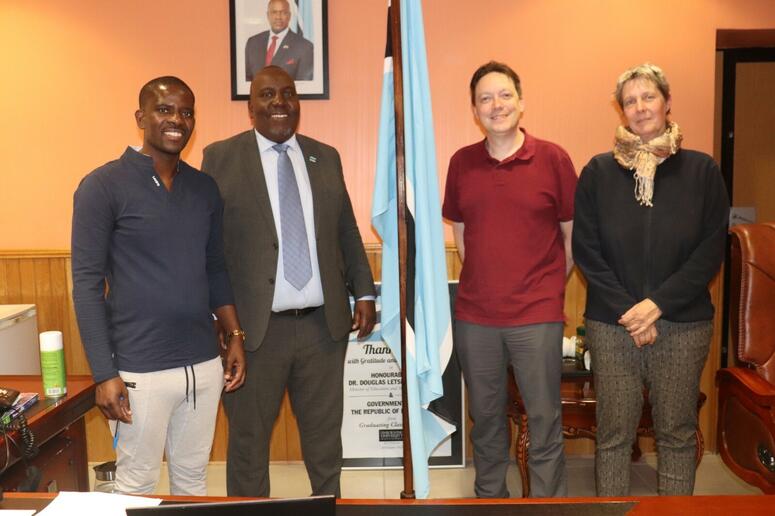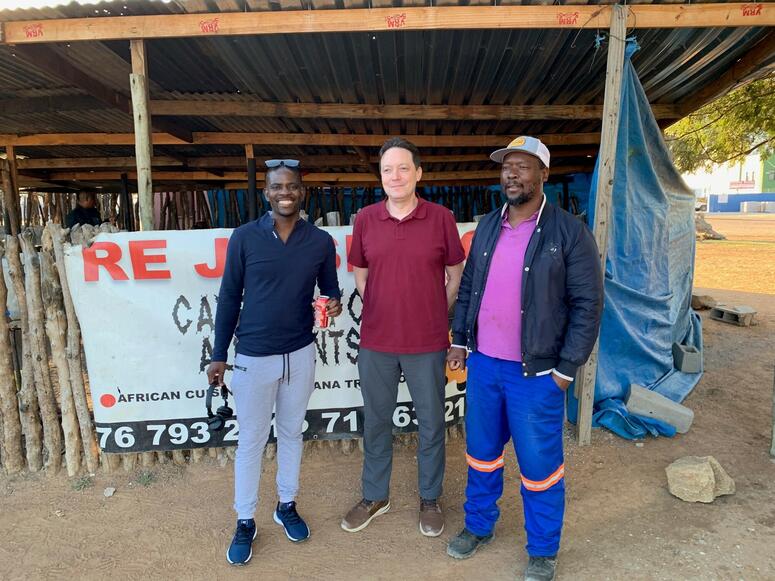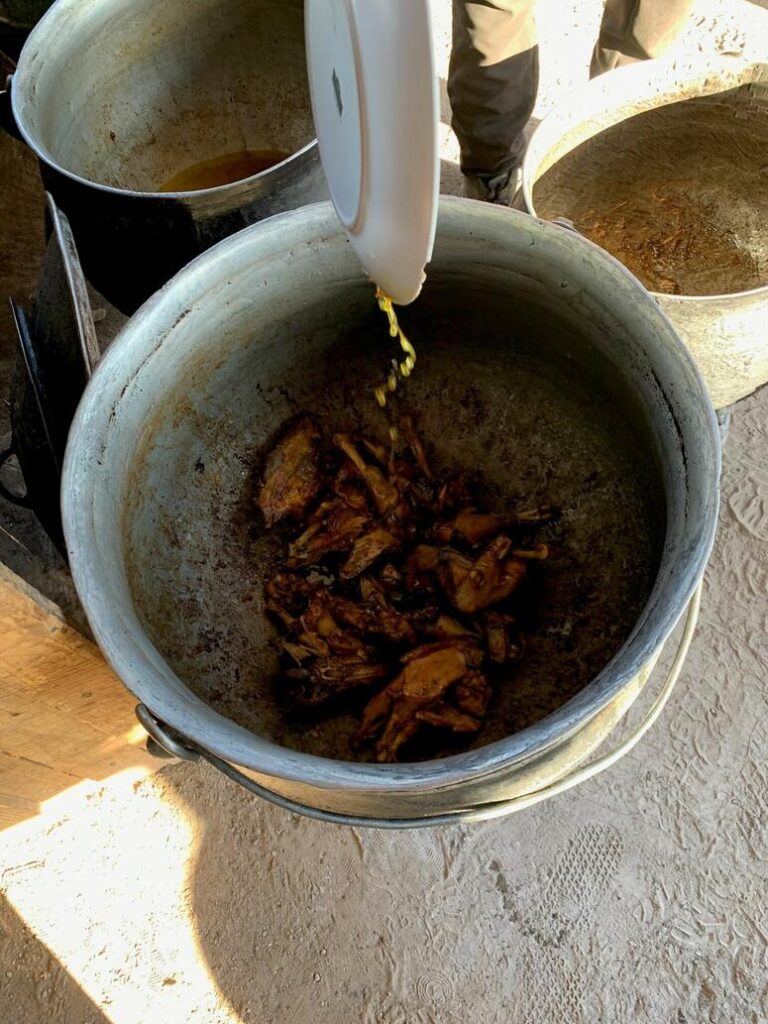Notes from the Field: Dr. Ian Tietjen in Africa, Part One
Dr. Ian Tietjen is a Research Assistant Professor in Wistar’s Montaner Lab, where he investigates traditional African medicinal compounds’ potential for drug origination against viruses like HIV. Dr. Tietjen travels to Africa to work with traditional healers to better understand the function of these compounds.
3 August 2023 – Today we are in Gaborone, the capital city of Botswana in Southern Africa, to prepare for a biomedical workshop that we are planning to hold next week in Tutume. Tutume is the main town of the Tutume district in Northeast Botswana, and Dr. Khumoekae Richard, a postdoc in Dr. Luis Montaner’s lab, and I began engaging with traditional healers back in 2019. We have been interested in working in Tutume because it has a large, complex traditional medicine system in addition to the Western medical system that we are more familiar with. However, in Tutume, the medicinal plant preparations and uses to manage HIV/AIDS, COVID-19, cancer, hypertension, and other diseases, are relatively undocumented.
We want to understand how healers identify and use local medicinal plants and how they may work at the molecular and cellular levels. Importantly, we also want to engage with the communities in a way that creates a trusting, open dialogue. For example, it is essential that we do not simply “take the medicines, make money, and never return.” Instead, we need to find new ways to work with healers over the long term so that their indigenous knowledge directly and primarily leads to local advances and benefits for both healers and their communities. We hope this workshop will be a first step toward achieving this.
Richard is originally from Botswana and grew up near Tutume, so he is fluent in the local languages (Setswana and I-Kalanga) and knows all the local customs and nuances. Since 2019, local Tutume healers have been particularly welcoming and open to working with him. From 2020-2022, Richard was fortunate to interview 13 healers from the region and document the medicinal plants they use to treat local people and their ailments. We focused on plants used for HIV, but they provided information on many others.
Richard collected 196 plants, of which 83 were bio-authenticated by a botanist at the University of Botswana. We just published the first manuscript in June 2023 (PMID: 37301306), but now it is time to meet the healers in-person and find ways to move this collaboration forward together.
For this visit, we showed healers and the local Tutume community some of the biomedical laboratory techniques that we typically use. We invited healers to bring plant samples to the workshop without disclosing their identities, and we will attempt to make extracts and test them for various bioactivities. We hope this workshop will help demystify scientists and hopefully jump-start new discussions of what we can do together. Richard and I are learning how to do this workshop under the guidance of Prof. Kerstin Andrae-Marobela at the University of Botswana, who has pioneered this approach in other parts of Botswana and elsewhere. We will soon be joined by researchers and knowledge-keepers from Canada and South Africa as well.
Today Richard and I had the opportunity to meet with the Honourable Dr. Douglas Letsholathebe, the Minister of Education and Skills Development of Botswana. He was formerly a physics professor at the University of Botswana and has a keen interest in incorporating local indigenous knowledge systems into Botswana’s economy to strengthen local knowledge, education, and natural resources. He is a good ally for work like this, and we hope we can be a good ally for him.
Richard also took us to Re Ja Sets, a traditional hut outside of Gaborone that cooks traditional Setswana food. Setswana food is simple and elegant at the same time — the traditional dish is usually beef or chicken on top of pap (milled corn), sorghum and pumpkin, or millet, with cabbage and maybe some spicy pepper sauce. Unlike most meat in the United States, Botswana’s protein has been free to spend its life running around and foraging; it also gets cooked right away. As a result, the flavor and texture are unlike anything we can get in a supermarket or restaurant in the West. The whole meal is very social: we sit in the hut and talk cordially with everyone around us, including the local farmers and restaurant owner. Everyone eats with their hands, but somehow, I seem to just make a mess instead.

Meeting and discussing Indigenous community and healer engagement projects with the Honourable Dr. Douglas Letsholathebe, Minister of Education and Skills Development of Botswana (second from left), far left is Dr. Khumoekae Richard, second from right is Dr. Ian Tietjen, and far right is Prof. Kerstin Andrae-Marobela.


Best dinner ever! (At least so far!)
